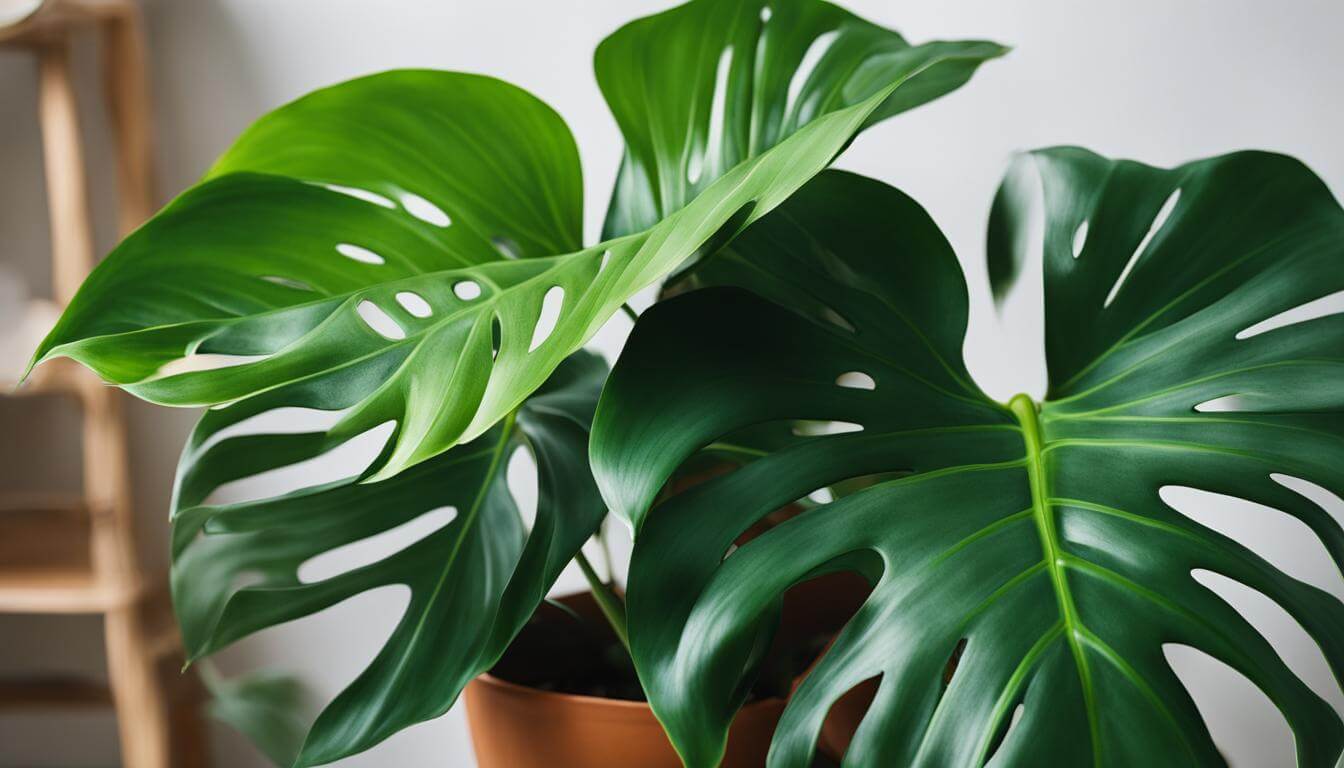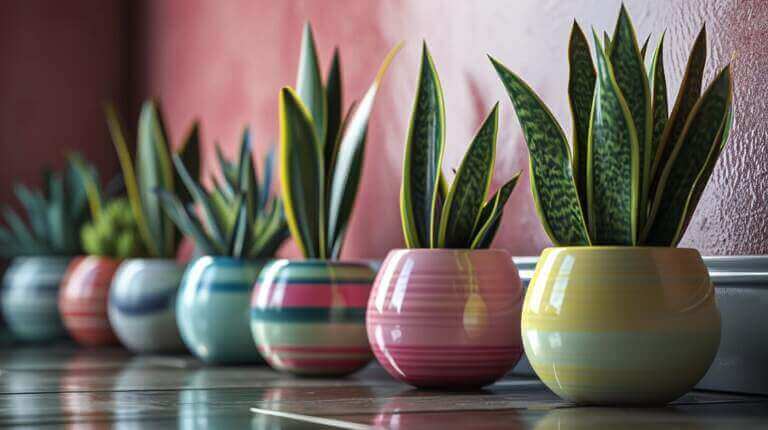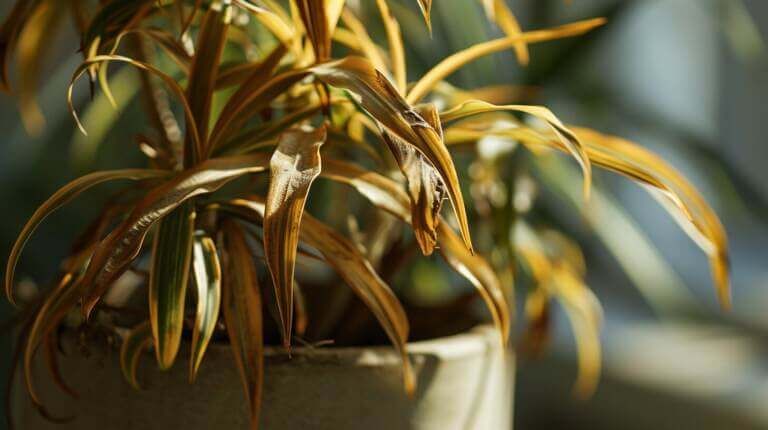As a pet owner, you might wonder, “Is Monstera Swiss Cheese Plant toxic to cats and dogs?” The answer is, yes, Monstera Deliciosa, commonly known as Swiss Cheese Plant, is indeed toxic to cats and dogs. In this pet safety guide, we will examine the hazards associated with toxic houseplants, focusing on Monstera’s toxicity to cats and dogs and how to protect our beloved pets from harm. You’ll also discover the importance of immediate veterinary attention and the pet poison helpline in case of accidental ingestion.
Key Takeaways
- Monstera Swiss Cheese Plant is toxic to both cats and dogs, posing severe health risks.
- Insoluble calcium oxalate crystals in Monstera Deliciosa cause irritation and damage to pets when ingested.
- Immediate symptoms include pawing at the mouth, excessive drooling, and other signs of distress.
- Contact your veterinarian or pet poison helpline immediately if you suspect your pet has ingested Monstera.
- Preventive measures, such as placing plants out of reach and offering pet-safe alternatives, can help protect our furry friends.
Understanding the Risk: Monstera Deliciosa’s Toxicity to Pets
Monstera Deliciosa, commonly known as the Swiss Cheese Plant, is a popular decorative houseplant belonging to the family Araceae. Although visually appealing, it poses significant risks to the health and safety of cats and dogs. The toxic attributes of this plant are not widely known, making it important for pet owners to be aware of this potential hazard.
The danger arises from the presence of insoluble calcium oxalate crystals within the plant. When ingested by pets, these sharp, needle-like crystals can induce an intensely painful reaction, leading to oral inflammation, a burning sensation, distress, and difficulty swallowing (dysphagia). These immediate symptoms are an indication of the plant’s potential threat to your beloved pets.
Beyond Monstera Deliciosa, there are numerous other Monstera species and toxic plants within the Araceae family that pet owners should be cautious of, including:
- Monstera Adansonii (Swiss Cheese Vine)
- Monstera Borsigiana (Fruit Salad Plant)
- Monstera Obliqua (Window Monstera)
- Monstera Siltepecana (Silver Monstera)
In severe cases, the plant’s toxicity can lead to life-threatening airway obstruction, making it vital for pet owners to take preventative measures and seek immediate veterinary care if an incident occurs. By understanding the risks posed by Monstera Deliciosa and other toxic species, you can create a safer living environment and protect your furry companions from unintentional harm.
Note: While Monstera plants pose a significant threat to cats and dogs, they are not considered toxic to humans. However, it is still advised to avoid ingestion and to keep out of reach from small children.
The Science Behind the Poison: Calcium Oxalate Crystals Explained
Monstera plants, members of the Araceae family, contain insoluble calcium oxalate crystals that pose serious health risks to cats and dogs upon ingestion. These crystals, found in specialized cells called idioblasts, can cause significant irritation and physical damage when they come in contact with animal tissues. Let’s take a closer look at how these crystals affect your pet’s health, recognize common symptoms, and learn the appropriate response and recovery methods when your pet ingests Monstera.
How Insoluble Calcium Oxalate Crystals Affect Your Pet’s Health
When pets chew on Monstera plants, the calcium oxalate crystals are released from the idioblasts and propelled into the surrounding tissue. This leads to immediate discomfort as the sharp crystals puncture and lodge into the pet’s mouth, throat, and gastrointestinal tract. The crystals cause severe irritation and physical damage, initiating the common symptoms of Monstera plant poisoning.
Common Symptoms of Monstera Plant Poisoning in Cats and Dogs
Monstera plant poisoning symptoms are apparent and should be monitored closely by pet owners to ensure their pets’ well-being. Some common symptoms include:
- Violent head shaking
- Drooling
- Pawing at the face
- Gagging
- Hoarse vocalization
- Depression
- Diarrhea
- Loss of appetite
- Visible swelling of the oral cavity
Respiratory difficulties may also occur if the swelling impedes breathing, and gastrointestinal irritation can cause diarrhea. Owners should be vigilant in observing these signs to safeguard their pets’ health.
Response and Recovery: What to Do if Your Pet Ingests Monstera
If your pet consumes any part of a Monstera plant, it’s essential to act quickly to mitigate the harmful effects of the calcium oxalate crystals. Here are some steps to take:
- Immediately wash your pet’s mouth and affected areas with water.
- Offer drinking water to help dilute the crystals.
- Contact your veterinarian right away for further instructions.
- Call the Animal Poison Control Center for professional guidance.
Lastly, it’s crucial to take preventative measures to protect your pets from toxic plants like Monstera. This includes keeping plants out of reach and using deterrents to discourage your pet from approaching potentially harmful foliage.
Creating a Safe Environment: Keeping Your Pets Away from Toxic Plants
Ensuring a safe environment for pets is a top priority for every pet owner. With houseplants like monstera posing significant risks to your furry friends, it’s essential to employ various strategies to keep them out of harm’s way.
One way to keep cats away from monstera is by making sure your plants are placed out of reach. This can be done by hanging them from the ceiling or placing them on high shelves. Be sure to consider your pet’s climbing abilities when selecting appropriate locations.
- Use physical barriers like baby gates or pet playpens to create designated pet-free zones.
- Invest in deterrent products like motion-activated sprayers or bitter-tasting sprays that discourage pets from coming near certain areas.
- Offer alternative distractions such as pet-friendly houseplants (e.g., spider plants, marantas) and interactive toys to keep your pets entertained.
Regular and thorough maintenance of the pet’s environment, including immediate clean-up of fallen plant material, is essential for preventing accidental ingestion. As mentioned, opt for non-toxic plants when possible. If you must have monstera, take precautions to keep your pets safe.
Remember, prevention is always better than cure. Never underestimate your pet’s curiosity and ensure that their environment remains safe and free from potential threats.
Pet-friendly houseplants not only add beauty to your home but also contribute to clean air and a healthier environment. Here are some popular non-toxic plants to consider:
| Non-Toxic Plants | Description |
|---|---|
| Boston Fern | An attractive, low-maintenance, and air-purifying plant with delicate fronds that thrive in bright, indirect light. |
| Spider Plant | Known for their unique, cascading foliage, spider plants can adapt to various light conditions and help in removing indoor pollutants. |
| African Violet | With stunning blooms in an array of colors, African violets are prized for their beauty and can thrive in brightly lit areas. |
| Calathea | A diverse group of vibrant, patterned foliage plants, calathea thrive in low to medium light and provide a stunning visual appeal. |
By keeping your pets away from toxic plants like monstera and choosing pet-friendly alternatives, you can create a harmonious and safe living space for everyone. Remember, the health and well-being of your furry friends are worth the extra effort.
Non-Toxic Alternatives: Safe Houseplants for Pet-Friendly Homes
As a responsible pet owner and plant enthusiast, it’s important to create a harmonious and pet-friendly environment in your home. There are plenty of beautiful houseplants that pose no threat to your beloved cats and dogs. Choosing non-toxic alternatives can help provide peace of mind and contribute to the overall well-being of both your pets and your indoor garden.
Some examples of safe and cat-safe plants include the vibrant African violet, the lush Boston fern, and the resilient spider plant. These houseplants not only offer visual appeal but also allow your pets to safely coexist with them. Including pet-friendly plants in your home can create a more welcoming space, ensuring that everyone thrives in a nurturing environment.
Another effective way to deter your pets from nibbling on off-limits foliage is to provide them with cat grass or catnip. These plants cater specifically to feline preferences and can help redirect their attention away from toxic houseplants. By incorporating pet-safe alternatives and plants that cater to your cat’s natural instincts, you can create a haven for both your pets and your plants, truly establishing a pet-friendly home.
FAQ
Is Monstera Deliciosa toxic to cats and dogs?
Yes, Monstera Deliciosa, also known as the Swiss Cheese Plant, contains insoluble calcium oxalate crystals that are highly toxic to cats and dogs, causing severe irritation and symptoms when ingested.
What symptoms should I look for if my pet ingested Monstera?
Symptoms of Monstera poisoning include violent head shaking, drooling, pawing at the face, gagging, hoarse vocalization, depression, diarrhea, loss of appetite, and visible swelling of the oral cavity. If you notice any of these symptoms, seek veterinary assistance immediately.
How do insoluble calcium oxalate crystals affect my pet’s health?
When a pet chews on a Monstera plant, the insoluble calcium oxalate crystals release, puncture the oral and gastrointestinal tissue, and lodge into the inner tissue, causing severe irritation and physical damage.
What should I do if my pet ingests a Monstera plant?
If your pet consumes any part of a Monstera plant, immediately wash their mouth and affected areas with water. Offer your pet water to drink and contact your veterinarian or Animal Poison Control Center for professional guidance and care.
How can I prevent my pet from consuming Monstera plants or other toxic houseplants?
Place plants out of your pet’s reach, use physical barriers or deterrents and offer alternative distractions such as cat-safe plants and toys. Maintaining your pet’s environment and promptly cleaning up fallen plant material will also help in preventing accidental ingestion.
What are some non-toxic houseplant alternatives for pet-friendly homes?
Non-toxic houseplant alternatives include African violet, Boston fern, spider plant, and several other pet-safe options. Creating a pet-safe environment ensures the well-being of both pets and plants indoors.







